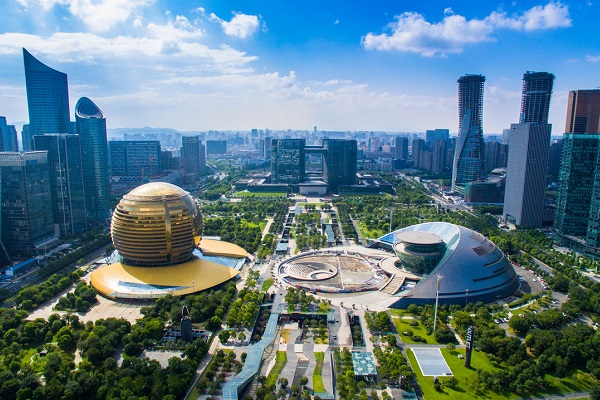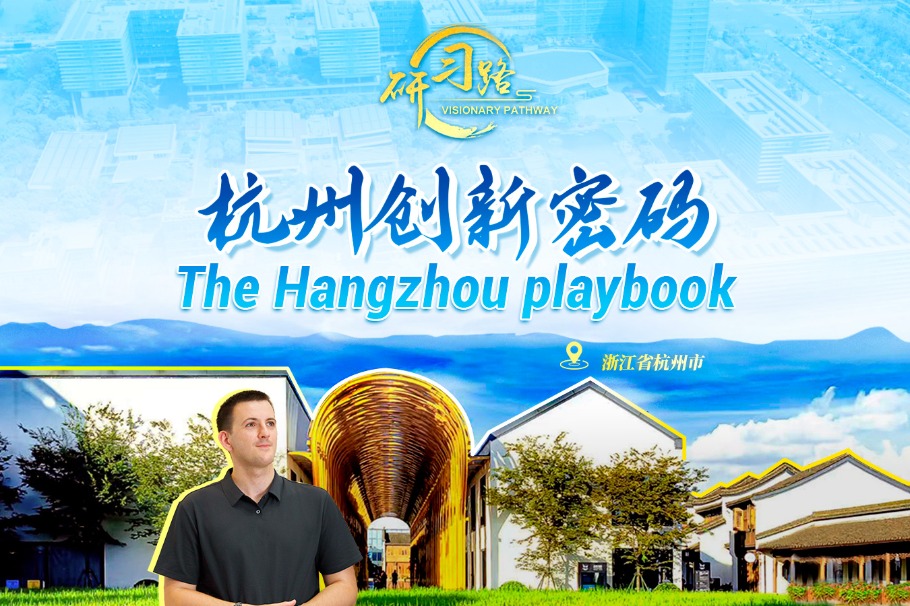From the mountains: Extending a heartfelt blessing to the Hangzhou Asian Games
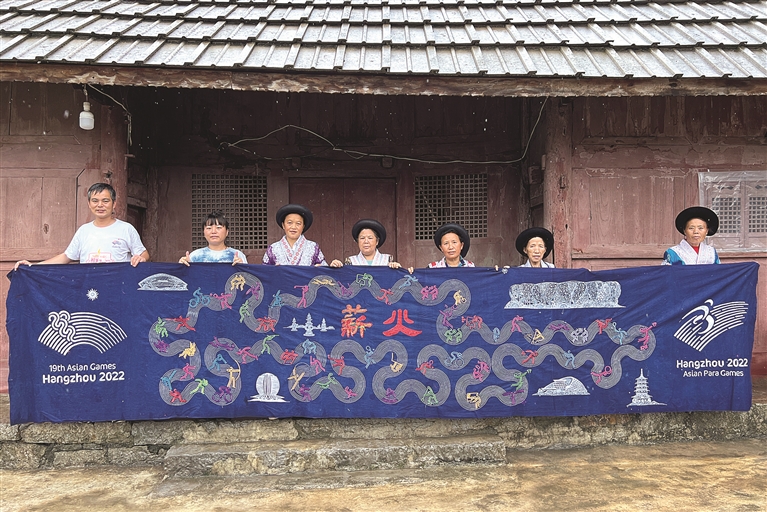
Women of the Miao ethnic minority in Xiongdong village, Guizhou province pose for a photo with Yang Ming (L1) on July 9, holding the almost completed gift for the Hangzhou Asian Games. [Photo/xsnet.cn]
In the scorching heat of the summer, women of the Miao ethnic minority in Group Eight of Xiongdong village, Qianxi city, Guizhou province, located thousands of miles away from Hangzhou, are using their agricultural downtime and working day and night to create a special gift for the Hangzhou Asian Games using local traditional craftsmanship.
It is a 5.5-meter long and 1.2-m wide artwork entitled Miao Culture Welcomes the Asian Games which combines two intangible cultural heritage crafts - batik and Miao embroidery.
Using the ancient batik fabric, the Miao women incorporate paper-cut flat embroidery and patchwork horse-tail embroidery techniques, cleverly combining Miao ethnic patterns with elements of the Hangzhou Asian Games and local landmarks.
The artwork is not only a symbol of the endurance of Chinese civilization, but also is helping to build anticipation for the Hangzhou Asian Games.
How did a group of Miao women from remote mountainous areas come up with the idea of making gifts for the Games?
Their story is a heartwarming one. The protagonist is Yang Ming, a native of Xiaoshan district in Hangzhou who was nominated as a national moral model and dedicated many years of his life to supporting education.
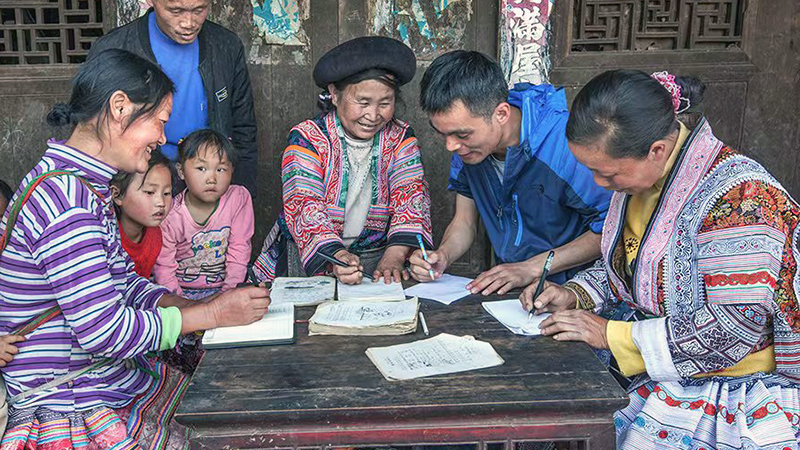
Yang talks with local women about their artwork. [Photo/xsnet.cn]
Group Eight of Xiongdong village used to be a deeply-impoverished area where people had to carry goods on their backs and horses, and transportation was extremely inconvenient.
In 2009, at the age of 25, Yang gave up a decent job in Hangzhou and went to support education in Qianxi mountainous area in Bijie, Guizhou.
Since then, he has visited Xiongdong village numerous times, participating in the literacy work of local villagers and conducting visits to families, becoming a "surrogate father" for some of the children. In 2018, despite the arduous journey, he traveled nearly 30 km daily to watch over 10 preschool children in the village.
"Group Eight of Xiongdong village used to be called Jianshan village. My hometown is the Jianshanxia village in Xiaoshan. The two village names are similar, so going there feels like going back home." Yang, who is far away from home, harnessed his homesickness to help those in need.
In 2021, after supporting education in Guizhou for 12 years, Yang finally settled down in Guizhou with his family. During this period, while teaching at Jinxiu School in Qianxi city, he and his wife began to engage in the promotion, dissemination, and protection of Miao ethnic culture in Qianxi. The couple has visited Xiongdong village multiple times, encouraging local women to pick up the wax knife again, revive their ethnic craftsmanship, and transform the traditional "finger-tip skills" into a "finger-tip economy."
When the Miao women learned that Yang's hometown would host the Asian Games, they thought of using their traditional craftsmanship to present a special gift from the Miao ethnic group to the Games. Within every stitch and thread, there is a blessing for the sporting event, a continuation of traditional culture, and a deep gratitude to the "brother from Xiaoshan" who has brought light to them time and time again.
"Local women have been working on this gift for nearly a year, and it will be completed in about a week. My wife and a few friends who love culture and art planned out the artwork. It means a lot to be able to bless the Asian Games in this way," Yang said. "I am proud of my hometown and looking forward to the splendid Hangzhou Asian Games!"
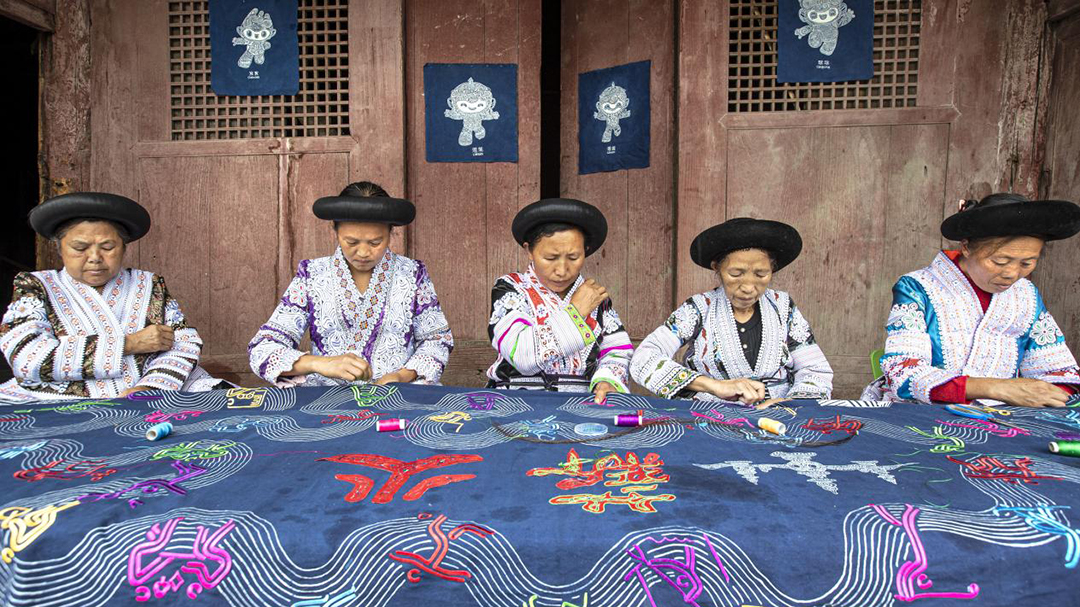
The work is an artistic integration of stitch and thread. [Photo/xsnet.cn]
-
Visionary Pathway - Hangzhou Playbook
July 15, 2025


